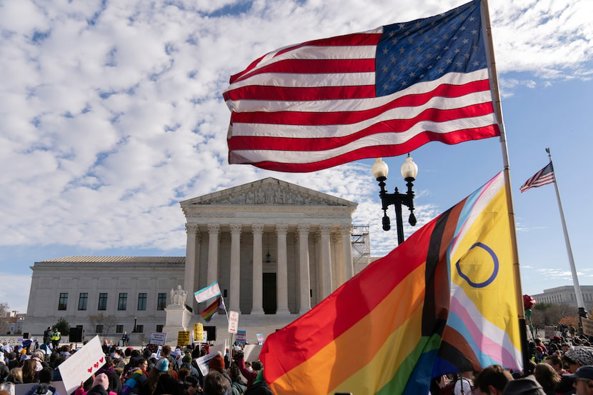
Supreme Court Upholds Tennessee Transgender Care Ban
The Supreme Court upholds Tennessee’s ban on transgender medical treatments for minors, sparking nationwide debate.
Landmark Ruling on Gender Transition Treatments
The U.S. Supreme Court ruled Wednesday that Tennessee’s Senate Bill 1, which bans transgender medical treatments for minors, does not violate the Equal Protection Clause of the Fourteenth Amendment. In a 6-3 decision in United States v. Skrmetti, the majority found that the law—prohibiting puberty blockers and hormone therapy intended for gender transition—remains within the state’s rights to regulate medical procedures for children.
Writing for the majority, Chief Justice John Roberts stated that the law does not classify on any basis that warrants heightened judicial scrutiny. “This case carries with it the weight of fierce scientific and policy debates about the safety, efficacy, and propriety of medical treatments in an evolving field,” Roberts wrote. He emphasized that the Court’s role is to ensure compliance with constitutional protections, not to weigh the wisdom or logic of the law. The ruling leaves questions about transgender medical care to legislatures and the democratic process, not the judiciary.
Tennessee’s law, passed in 2023, prohibits healthcare providers from administering puberty blockers and hormone therapy to minors for the purpose of gender transition. The law also imposes fines, lawsuits, and potential liability for providers who violate it. The state argued that its intent is to protect children from unproven and potentially life-altering medical procedures, as well as to safeguard the integrity of the medical profession.
Dissent and Broader Implications
Justice Sonia Sotomayor issued a forceful dissent, joined by Justices Ketanji Brown Jackson and Elena Kagan. Reading her dissent from the bench, Sotomayor argued that the majority had abandoned transgender children and their families to “political whims” and that the law plainly discriminates based on sex and transgender status. She warned that the decision “does irrevocable damage to the Equal Protection Clause” and criticized the majority for subjecting the law to a mere rational-basis review, instead of a heightened level of scrutiny.
The case was brought by families of transgender adolescents and medical professionals, supported by the American Civil Liberties Union and, initially, the Biden administration. The petitioners argued that Senate Bill 1 violates constitutional protections and undermines parental rights and medical judgment. However, the Trump administration changed the government’s stance, siding with the state of Tennessee and affirming the law’s constitutionality.
Senate Bill 1 was one of the most closely watched Supreme Court cases this term and could serve as a precedent for future legislation involving transgender rights, including access to sports, bathrooms, and other aspects of public life. The majority opinion emphasized that the Equal Protection Clause does not resolve scientific and policy disputes, affirming that such issues are best handled by the people’s elected representatives.
In response to the decision, Attorney General Pam Bondi stated that the Department of Justice will continue to defend parental rights and protect children nationwide. Opponents, including Justice Sotomayor and advocacy groups, caution that the ruling may cause untold harm to transgender youth and encourage further legislative restrictions in other states.
As the debate over transgender rights continues across the country, the Court’s decision in United States v. Skrmetti marks a significant shift in the legal landscape, reinforcing state authority in regulating medical care for minors while igniting continued debate over civil rights and constitutional protections.






